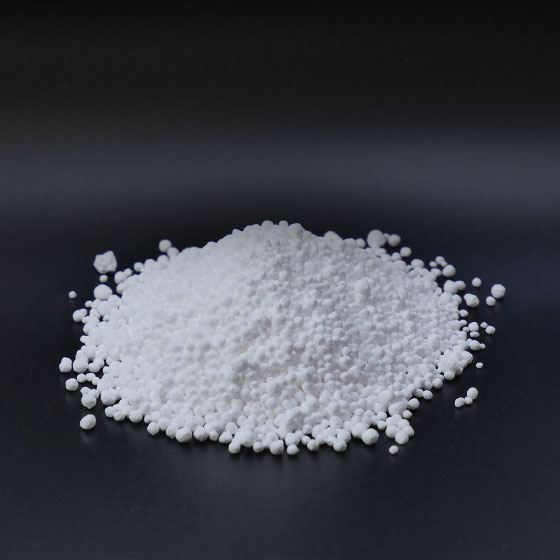
Calcium Chloride
Calcium chloride dihydrate is a dihydrate form of calcium chloride in the form of a hydrate. It’s a hydrate, a calcium salt, and an inorganic chloride all rolled into one. It is a rich source of important micronutrients like calcium and chloride.

Applications
Applications
01
De-icing
As a potent ice melter, Calcium Chloride, aka ice melt salt, lowers the freezing point of water, melting ice and snow on roads, walkways, and parking lots thus ensuring safe and accessible roads during winter months.
02
Dust Control
In construction, mining, and industrial settings, Calcium Chloride effectively absorbs moisture and suppresses dust, improving air quality and safety. This is particularly relevant in environments where dust poses health hazards or hinders visibility.
03
Oil & Gas Drilling
In drilling operations, Calcium Chloride serves as a weighting agent for drilling mud and helps regulate well pressure, ensure wellbore stability and contribute to efficient drilling processes and enhanced resource extraction.
04
Concrete Curing
Adding Calcium Chloride accelerates the setting and hardening of concrete, especially in cold weather, allowing for faster construction progress. This can be crucial for time-sensitive projects or in regions with harsh winters.
05
Paper & Pulp Production
As a coagulant and deinking agent, Calcium Chloride improves paper quality and facilitates efficient paper recycling, contributing to environmental sustainability.
06
Metalworking
Diluted Calcium Chloride solutions are used in metal cleaning and pickling before welding, painting, or other treatments. By removing contaminants and oxides, it promotes better adhesion and ensures the effectiveness of subsequent processes.
07
Wastewater Treatment
Calcium Chloride removes phosphorus from wastewater. This process helps limit excessive algae growth (eutrophication) in receiving waterways, which can threaten aquatic life. Calcium Chloride can also assist in removing fluorides, heavy metals, and oily wastes from wastewater streams. It often works in conjunction with other treatment chemicals and processes.
08
Refrigeration Brines
Calcium Chloride helps create brines that remain liquid at temperatures far below the normal freezing point of water (0°C/32°F). These brines are essential for certain refrigeration applications.
09
Chemical Processing
Calcium Chloride finds use in various chemical reactions, acting as a desiccant, drying agent, chloride source, precipitant and coagulant. In some high-temperature processes, Calcium Chloride lowers the melting point of other materials, acting as a flux.This promotes easier melting and processing, reducing energy consumption.